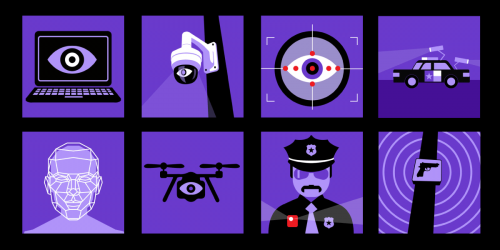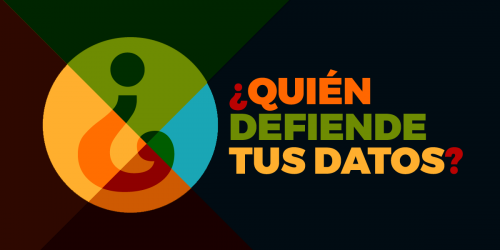For years EFF has been calling for U.S. companies that act as “repression’s little helpers” to be held accountable, and now we’re telling the U.S. Supreme Court. Despite all the ways that technology has been used as a force for good—connecting people around the world, giving voice to the less powerful, and facilitating knowledge sharing—technology has also been used as a force multiplier for repression and human rights violations, a dark side that cannot be denied.
Today EFF filed a brief urging the Supreme Court to preserve one of the few tools of legal accountability that exist for companies that intentionally aid and abet foreign repression, the Alien Tort Statute (ATS). We told the court about what we and others have been seeing over the past decade or so: surveillance, communications, and database systems, just to name a few, have been used by foreign governments—with the full knowledge of and assistance by the U.S. companies selling those technologies—to spy on and track down activists, journalists, and religious minorities who have been imprisoned, tortured, and even killed.
Specifically, we asked the Supreme Court today to rule that U.S. corporations can be sued by foreigners under the ATS and taken to court for aiding and abetting gross human rights abuses. The court is reviewing an ATS lawsuit brought by former child slaves from Côte d’Ivoire who claim two American companies, Nestlé USA and Cargill, aided in abuse they suffered by providing financial support to cocoa farms they were forced to work at. The ATS allows noncitizens to bring a civil claim in U.S. federal court against a defendant that violated human rights laws. The companies are asking the court to rule that companies cannot be held accountable under the law, and that only individuals can.
We were joined in the brief by the leading organizations tracking the sale of surveillance technology: Access Now, Article 19, Privacy International, Center for Long-Term Cybersecurity, and Ronald Deibert, director of Citizen Lab at University of Toronto. We told the court that the Nestlé case does not just concern chocolate and children. The outcome will have profound implications for millions of Internet users and other citizens of countries around the world. Why? Because providing sophisticated surveillance and censorship products and services to foreign governments is big business for some American tech companies. The fact that their products are clearly being used for tools of oppression seems not to matter. Here are a few examples we cite in our brief:
Cisco custom-built the so-called “Great Firewall” in China, also known as the “Golden Shield,” which enables the government to conduct Internet surveillance and censorship against its citizens. Company documents have revealed that, as part of its marketing pitch to China, Cisco built a specific “Falun Gong module” into the Golden Shield that helped Chinese authorities efficiently identify and locate members of the Falun Gong religious minority, who were then apprehended and subjected to torture, forced conversion, and other human rights abuses. Falun Gong practitioners sued Cisco under the ATS in a case currently pending in the U.S. Court of Appeals for the Ninth Circuit. EFF has filed briefs siding with the plaintiffs throughout the case.
Ning Xinhua, a pro-democracy activist from China, just last month sued the successor companies, founder, and former CEO of Yahoo! under the ATS for sharing his private emails with the Chinese government, which led to his arrest, imprisonment, and torture.
Recently, the government of Belarus used technology from Sandvine, a U.S. network equipment company, to block much of the Internet during the disputed presidential election in August (the company canceled its contract with Belarus because of the censorship). The company’s technology is also used by Turkey, Syria, and Egypt against Internet users to redirect them to websites that contain spyware or block their access to political, human rights, and news content.
We also cited a case against IBM where we filed a brief in support of the plaintiffs, victims of apartheid, who sued under the ATS on claims that the tech giant aided and abetted the human rights abuses they suffered at the hands of the South African government. IBM created a customized computer-based national identification system that facilitated the “denationalization” of country’s Black population. Its customized technology enabled efficient identification, racial categorization, and forced segregation, furthering the systemic oppression of South Africa’s native population. Unfortunately the case was dismissed by the U.S. Court of Appeals for the Second Circuit.
The Supreme Court has severely limited the scope of the ATS in several rulings over the years. The court is now being asked to essentially grant immunity from the ATS to U.S. corporations. That would be a huge mistake. Companies that provide products and services to customers that clearly intend to, and do, use them to commit gross human rights abuses must be held accountable for their actions. We don’t think companies should be held liable just because their technologies ended up in the hands of governments that use them to hurt people. But when technology corporations custom-make products for governments that are plainly using them to commit human rights abuses, they cross a moral, ethical, and legal line.
We urge the Supreme Court to hold that U.S. courts are open when a U.S. tech company decides to put profits over basic human rights, and people in foreign countries are seriously harmed or killed by those choices.








